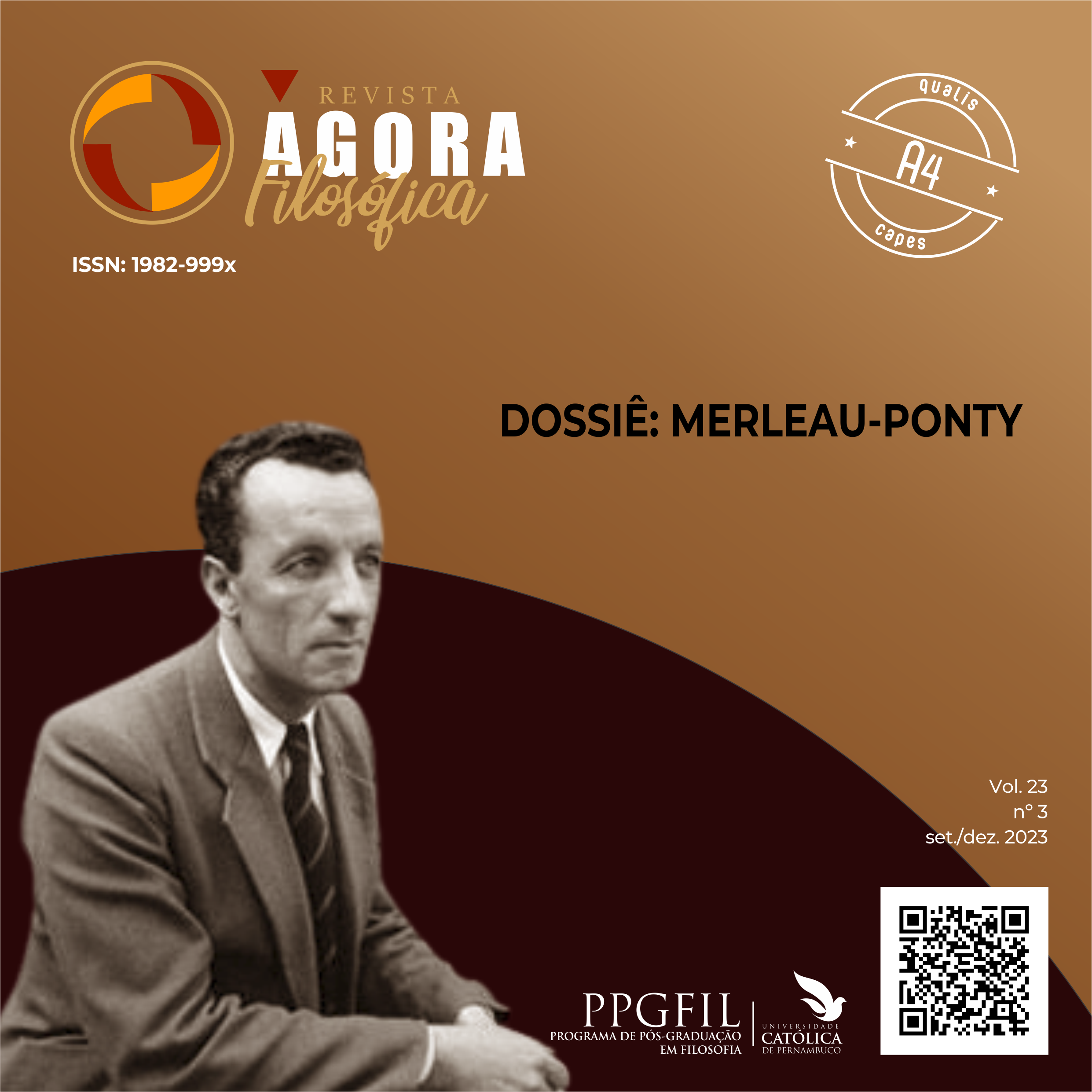Modalidade, funções proposicionais e aprendizado lógico: um olhar histórico sobre o conflito entre Kripke e Frege-Russell no prefácio de Naming and Necessity
DOI:
https://doi.org/10.25247/P1982-999X.2023.v23n3.p170-190Palavras-chave:
Modalidade, Rigidez, falibilismo lógico, Análise, funções proposicionaisResumo
Argumentamos que as vantagens técnicas da rigidez não são o fator mais importante na aceitação da tese de Kripke contra Frege-Russell (sense-wide-scope). A tese filosófica de Kripke está muito distante da de Frege-Russell no sentido de que o primeiro avalia a função da "identidade" de uma maneira diferente - metafísica - do que o último. Neste artigo, argumentamos que a discussão pode evoluir por um caminho diferente: avaliando e avaliando a divergência entre diferentes concepções de conhecimento contrafactual, e estudando os motivos e preços que pareciam razoáveis a Russell-Frege para lidar com o problema modal sem expandir o universo extensional da lógica clássica. Em particular, consideraremos os méritos da opção russelliana, entendida como uma teoria do conhecimento lógico das várias maneiras pelas quais uma proposição pode ser falsa, dependendo de como analisamos a anti-extensão da proposição usando funções proposicionais. Os predicados modais podem ser entendidos essencialmente dentro das estruturas de modelos de verdade falíveis, encontrando uma interpretação extensional para cenários contrafactuais e identidades complexas extensionalizantes. Isso fornece uma compreensão não metafísica do que acontece quando alguém aprende algo logicamente sobre modalidade e contrafactualidade.
Downloads
Referências
DEJNOSKA, Dan. Bertrand Russell on Modality and Logical Relevance. 2. ed. Publisher: Jan Dejnozka ISBN: 13: 978–1478292616, 10: 147829261X, 2015.
DUMMETT, Michael. The Interpretation of Frege’s Philosophy. Harvard University Press. 1981.
EVANS, Gareth. The Varieties of Reference. Oxford: Oxford U. P. 1982.
FREGE, Gotlob. Sense and Reference. Reviewed work(s): Source: The Philosophical Review, v. 57, n. 3, may/1948, p. 209-230. Published by: Duke University Press on behalf of Philosophical Review Stable URL: http://www.jstor.org/stable/2181485. 1948.
JAMES, Connelly. Russell's Contribution to Philosophy of Language. Review of Graham Stevens, The Theory of Descriptions: Russell and the Philosophy of Language. Russell: The Journal of Bertrand Russell Studies, 33 (1). 2013.
MARCUS, Ruth Barcan. Modalities and intensional languages. Synthese 13 (4):303-322. 1961.
QUINE, W. V. O. Logic and the reification of universals. 2. ed. In: From a Logical Point of View. Cambridge, MA: Harvard University Press, p. 102–129. (First edition 1953). 1980.
QUINE, W.V.O, 1994. The Ways of Paradox. (Harvard University Press, 1966,1976; 1994
KRIPKE, Saul. Naming and Necessity. Harvard Press. 2001
STEVENS, Graham. The Theory of Descriptions: Russell and the Philosophy of Language. Palgrave-Macmillan. 2011.
RUSSELL, Bertrand. On Denoting. Mind, New Series, v. 14, No. 56. (Oct., 1905), p. 479-493. 1905.
RUSSELL, Bertrand. The Philosophy of Logical Atomism. London and New York, Routledge Classics, 2010.
RUSSELL, Bertrand. Mysticism, Logic and Other Essays. London, George Allen & Unwin Ltd. 1917.
SOAMES, Scott. No class: Russell on contextual definition and the elimination of sets. Philosophical Studies, v. 139, p. 213-218, 2008.
Downloads
Publicado
Edição
Seção
Licença
Copyright (c) 2023 Lucas Ribeiro Vollet

Este trabalho está licenciado sob uma licença Creative Commons Attribution 4.0 International License.
Você tem o direito de:
- Compartilhar — copiar e redistribuir o material em qualquer suporte ou formato para qualquer fim, mesmo que comercial.
- Adaptar — remixar, transformar, e criar a partir do material para qualquer fim, mesmo que comercial.
- O licenciante não pode revogar estes direitos desde que você respeite os termos da licença.
De acordo com os termos seguintes:
- Atribuição — Você deve dar o crédito apropriado , prover um link para a licença e indicar se mudanças foram feitas . Você deve fazê-lo em qualquer circunstância razoável, mas de nenhuma maneira que sugira que o licenciante apoia você ou o seu uso.
- Sem restrições adicionais — Você não pode aplicar termos jurídicos ou medidas de caráter tecnológico que restrinjam legalmente outros de fazerem algo que a licença permita.
Avisos:
Você não tem de cumprir com os termos da licença relativamente a elementos do material que estejam no domínio público ou cuja utilização seja permitida por uma exceção ou limitação que seja aplicável.
Não são dadas quaisquer garantias. A licença pode não lhe dar todas as autorizações necessárias para o uso pretendido. Por exemplo, outros direitos, tais como direitos de imagem, de privacidade ou direitos morais , podem limitar o uso do material.

















